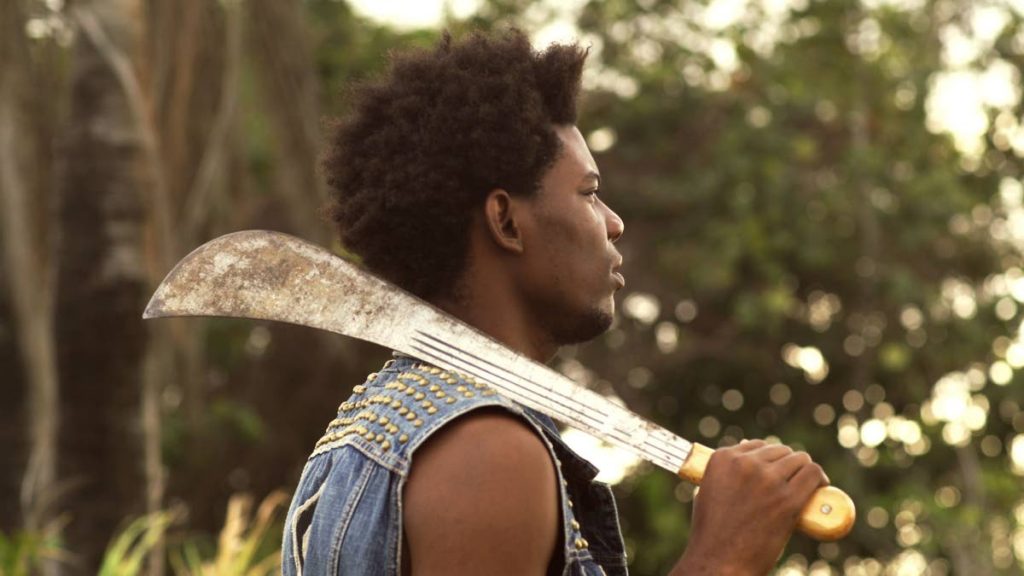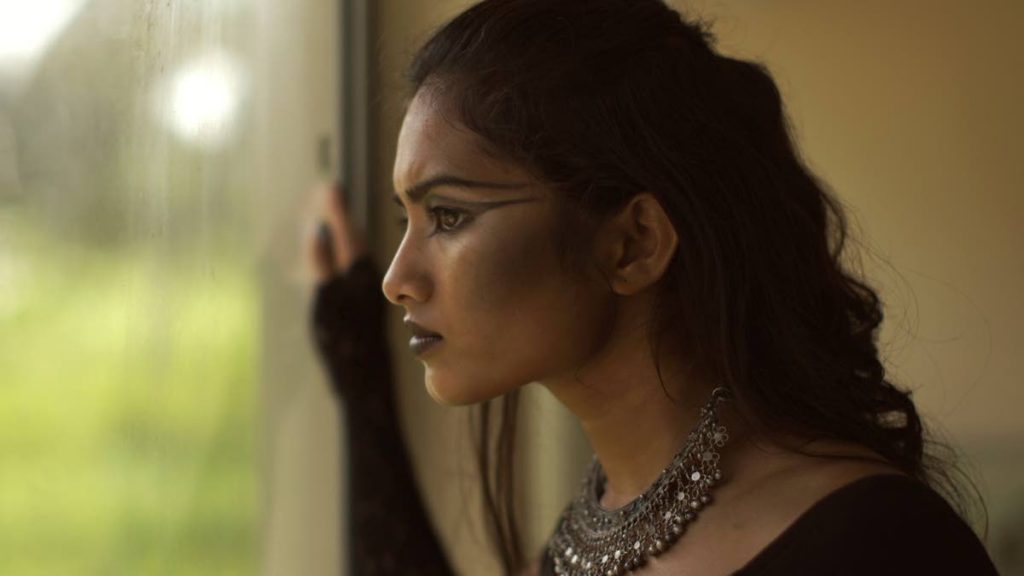Drama and romance in Moko Jumbie

Exploring the old family estate by the sea in south Trinidad, Asha finds her Uncle Jagessar, lamenting the state of the lemons.
Often, though, he’s more profound. “Anything that can happen does happen,” he tells her, philosophising about parallel universes. Sometimes those universes seem to overlap in Moko Jumbie, an oblique, dreamlike film, where the everyday life of a sleepy, remote village can encompass unexpected drama and romance and even the supernatural.
Asha (Vanna Girod) grew up in England, and has fond memories of coming to stay in this house as a child, when her grandparents were alive. But her cousin doesn’t share those memories, and her aunt Mary (Sharda Maharaj), who now lives in the house alone, is guarded and suspicious. She teaches Asha what to do if wild dogs come into the yard, warns her not to stray too far from home, tells her who she shouldn’t speak to.

Asha smiles at the old family photos, and is thrilled when her aunt gives her one of her grandmother’s necklaces, brought from India many years ago. She’s fascinated when she sees the boy next door, Roger, catching crabs in the road. She enjoys her short, unplanned meetings with Uncle Jagessar (Dinesh Maharaj) and his reminiscing about what she too thinks of as the good old days.
But her nostalgia doesn’t last for long when Aunt Mary’s beloved stash of family jewelry is stolen. Her aunt laments the state of the country, and the fact that “we Indians and they Africans always fighting”—but she constantly warns Asha not to have anything to do with the black people who are her tenants in the ramshackle old house across the road. They’re criminals, she says—and don’t eat or drink anything that the woman of the house, Gloria, gives you.
Towards the end of Moko Jumbie there are abrupt, brief indications that the country as a whole is in an equally precarious, hostile state.
But sometimes the viewer—like Asha—can’t tell what’s real and what isn’t. She sees visions; sometimes other people see them too, but at other times she can’t tell if she’s imagined them. Even the deep-thinking Uncle Jagessar can’t say what it means when she sees the moko jumbie. One thing is clear, though: the Trinidad of her childhood no longer exists, and whether or not her cousin means it unkindly when she tells Asha, “This is not your country,” she’s right.
Still, in her city-girl make-up and fashionable boots, Asha can still enjoy some of the simple pleasures that remain: the view of the sea from the cliff; the village single-pan steelband for which Roger plays, practising under a tree at night; dancing to soca with Roger in the village rumshop.

It’s with her uncle and with Roger (Jeremy Thomas) that Asha is happiest—much to the disapproval of her aunt. Trinidadian-American director Vashti Anderson’s story—some of it autobiographical—mingles memory and longing, the real and the imagined, in this elliptical story of family, race, class, and the quest for home.

Comments
"Drama and romance in Moko Jumbie"